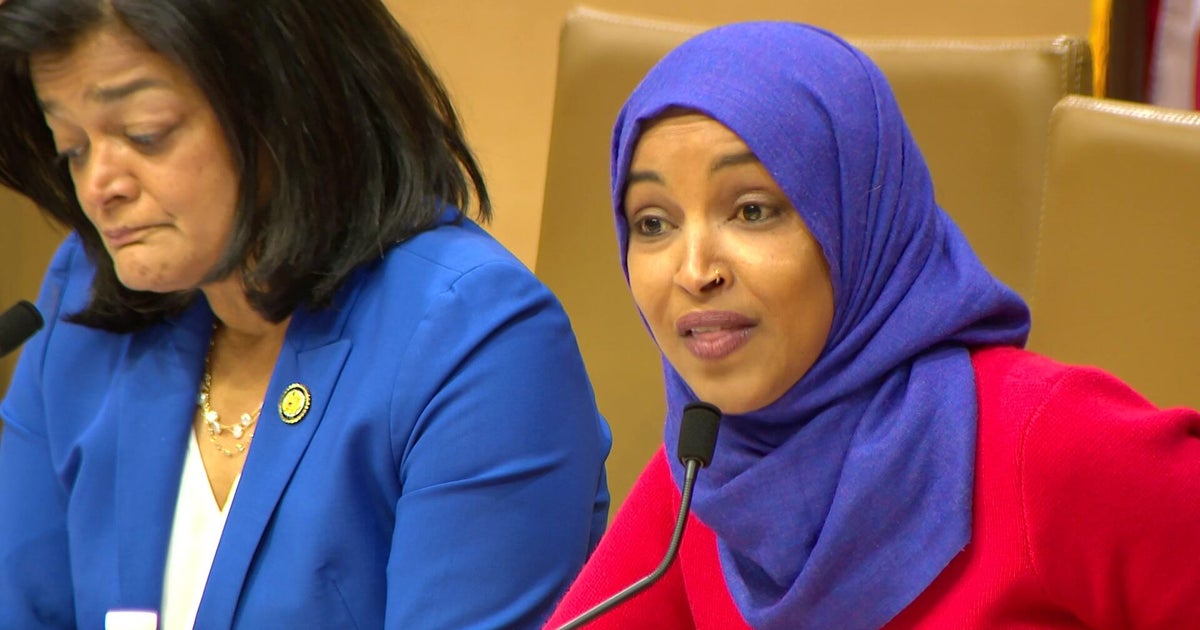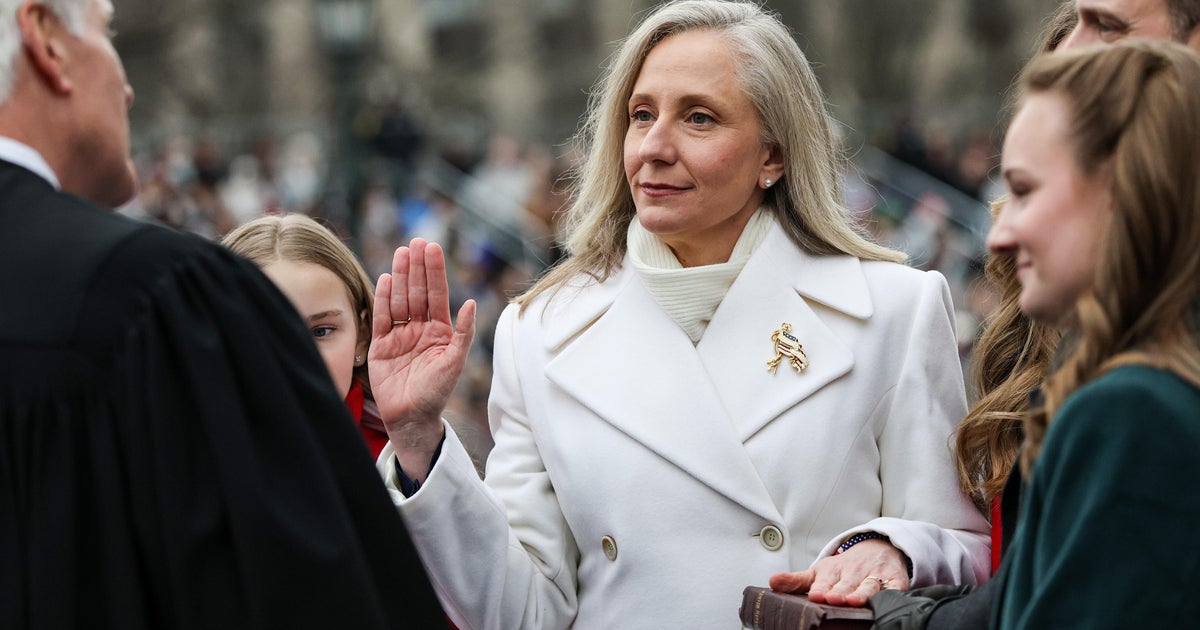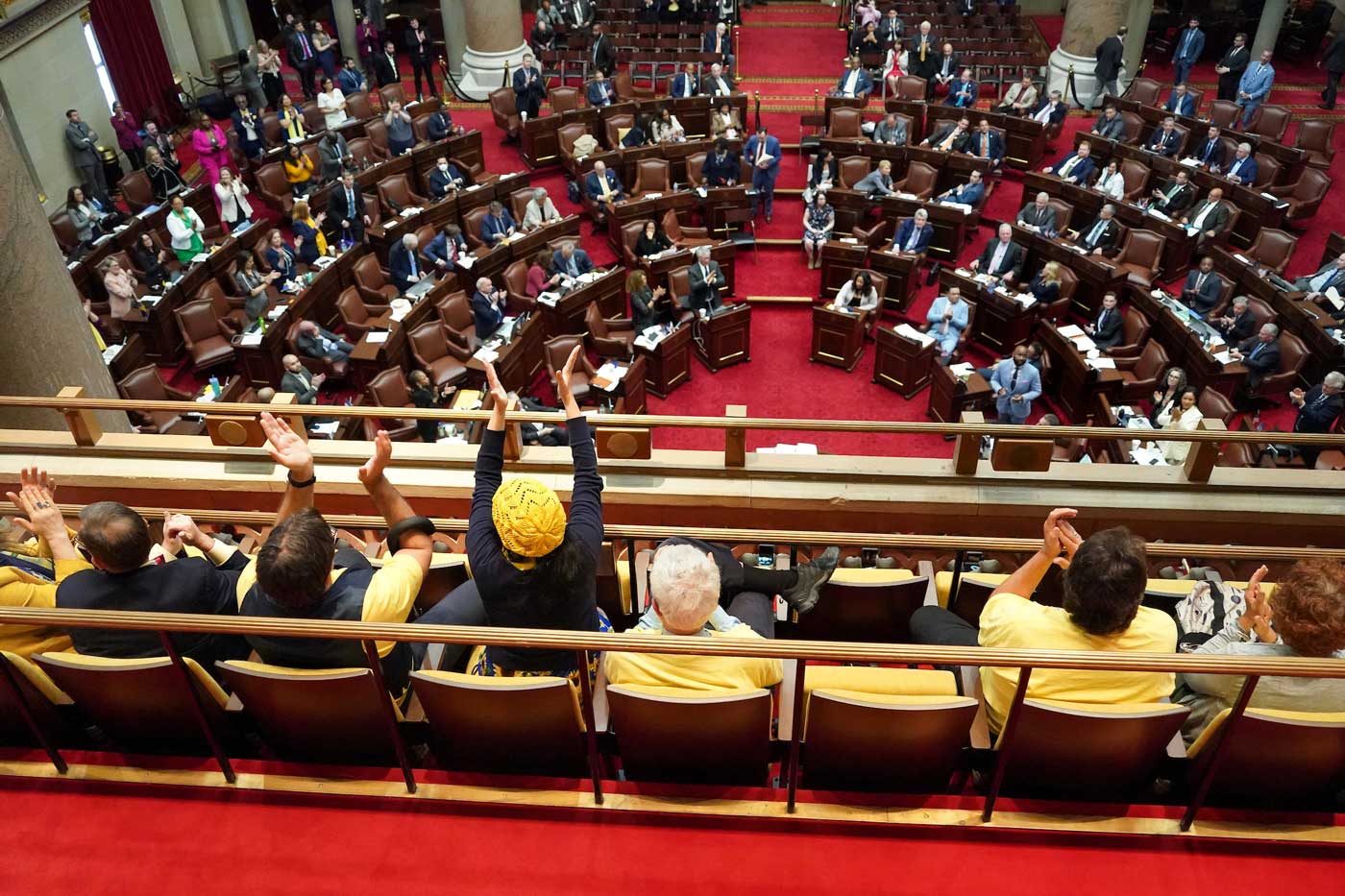First 2 U.S. lawmakers diagnosed with coronavirus
Two lawmakers have tested positive for coronavirus on Capitol Hill, the first to be diagnosed. Congressmen Mario Diaz-Balart, Republican of Florida, and Ben McAdams, a Utah Democrat, both tested positive for the COVID-19, according to press releases from their offices. The two were last seen at the Capitol on Friday when the House voted on the Families First Coronavirus Response Act alongside hundreds of other members.
This comes as at least 17 members in the House of Representatives have self-quarantined after coming into contact with an individual or individuals who later tested positive for the virus.
Diaz-Balart said in his statement that he developed symptoms including a headache and fever Saturday evening, and the test results came back positive on Wednesday.
"I want everyone to know that I am feeling much better," Diaz-Balart said.
He urged "everyone take this extremely seriously and follow CDC guidelines." He said he chose to self-quarantine in Washington, D.C., since his wife in South Florida has some pre-existing conditions, and he did not want to expose her to the virus.
"We must continue to work together to emerge stronger as a country during these trying times," Diaz-Balart said.
Soon after Diaz-Balart announced his infection, McAdams said he, too, had tested positive for COVID-19, according to a press release.
McAdams said he has been in self-quarantine since Sunday at his home in Utah after developing mild cold-like symptoms. He said his symptoms progressed with "a fever, dry-cough and labored breathing."
"Today I learned that I tested positive. I am still working for Utahns and pursuing efforts to get Utahns the resources they need as I continue to do my job from home until I know it is safe to end my self-quarantine," McAdams said.
Following Diaz-Balart's announcement, House Minority Whip Steve Scalise, Republican of Louisiana, said in a statement Wednesday that he would self-quarantine, based on a recommendation from the Capitol physician's office since he had had an "extended meeting" with Diaz-Balart last week.
"Fortunately, I am not experiencing any symptoms and will continue working remotely on Congress' Coronavirus response," Scalise said in a press release.
Representative Drew Ferguson, Republican of Georgia, also said in a statement Wednesday that he would self-quarantine after coming into contact "with a member of Congress that has since tested positive for COVID-19."
A group of more than 50 house lawmakers called on House leadership in both parties to allow remote voting.
"When it comes to social distancing and public health best practices, Congress should be an example, not an exception, Congresswoman Katie Porter, Democrat of California, said in a tweet Wednesday.
House Speaker Nancy Pelosi said her office has taken "appropriate actions" to identify members who require "additional monitoring for periods of quarantine."
"The attending physician has been carefully monitoring recent developments involving two members of the United States House of Representatives who have tested positive for COVID-19, who are ill, but in good condition," her release states.
President Trump signed a relief package Wednesday that was just passed by the Senate Wednesday and by the House last week. Congress is working on another massive stimulus package to respond to the widespread economic turmoil caused by the coronavirus.





